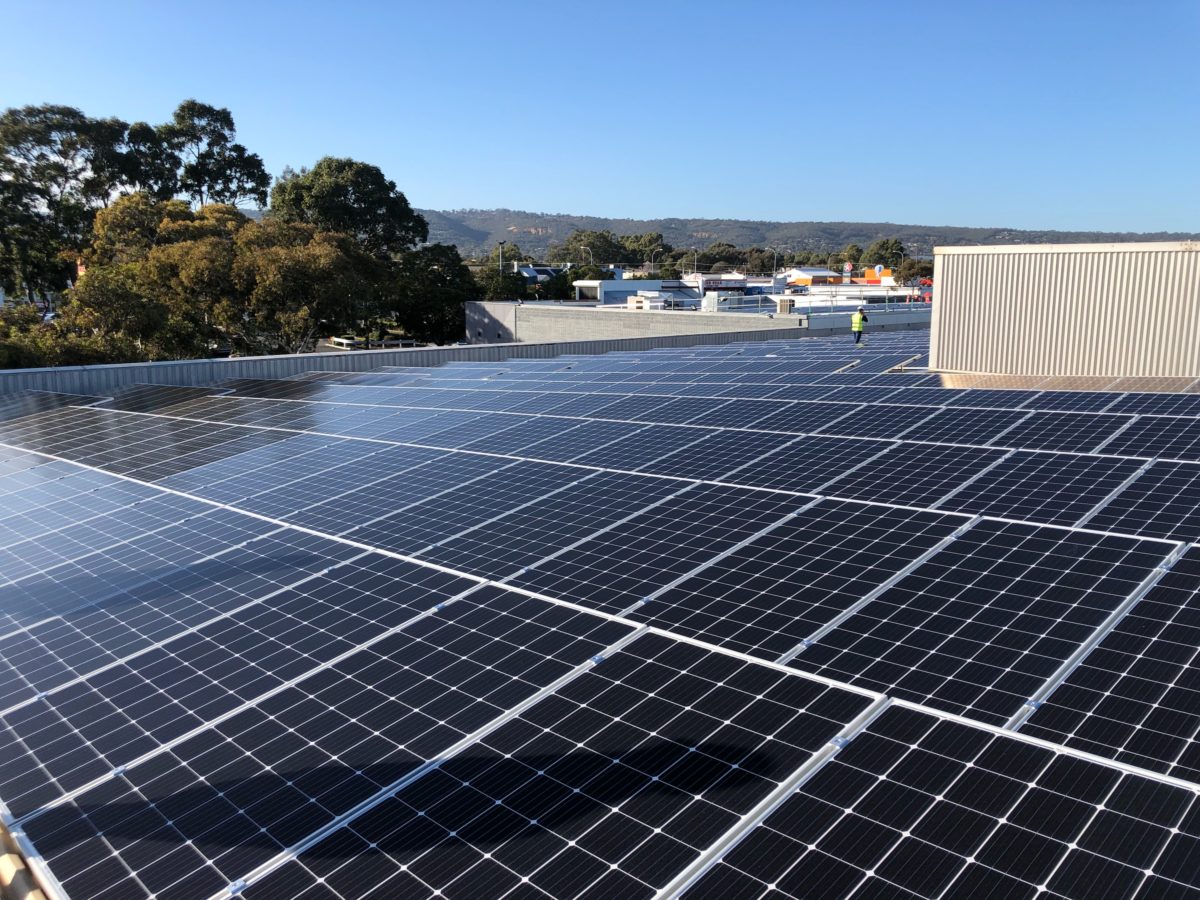Building on its incentives program launched in 2015, South Australia’s capital has unveiled a range of new rebates for technologies that can help it generate, share and utilise renewable electricity at a bigger scale as it moves towards its goal of becoming a carbon neutral city.
From July 1, funding will be available for community and commercial PV systems, bidirectional EV charging infrastructure, energy storage and controlled load. Following significant interest from apartment and office tenants seeking to overcome barriers to installing solar power, the City of Adelaide is also introducing rebates to help owners to co-invest in solar systems and share the electricity that is generated thereby saving on their bills.
Another area where City incentives would boost innovation is two-way EV charging stations with energy management that enables car batteries to feed into the electricity grid and form virtual power plants (VPP). “By 2025 or 2030, car park operators could be partnering with electric vehicle fleets to charge when electricity prices are low and sell when prices are high,” Lord Mayor Sandy Verschoor said.
“Adelaide is preparing for a future where workers could be ‘paid to park’ or visitors might ‘plug and play’ while they are at a City festival, because they can sell energy in their vehicle battery back to the national electricity market,” he said, adding the scheme could help car park operators, who manage over 26,600 public parking bays, to support businesses and commuters to embrace EVs.
The City of Adelaide led the way when it introduced Australia’s first energy storage and EV charging station incentives in July 2015 alongside rebates for solar PV systems and energy efficiency upgrades. Since then, the scheme co-funded by the state government has assisted 476 applicants to invest over $7.3 million in sustainable technologies. According to the Lord Mayor, for every $1 contributed by the scheme, it has secured almost $8 of private investment.
“As a city designed for thoughtful innovation, Adelaide is inviting entrepreneurs and researchers to come and build businesses around electric vehicle-to-grid technologies,” Verschoor said. “With these technologies already on the market, we are getting ready for the day when they can act like a big battery for Adelaide and all South Australians.”
The Council will also be offering incentives for businesses and households shifting electricity use to times when renewable electricity is abundant and approximately half the normal cost. In the control load category, rebates are available for smart systems that control approved appliances on the property (e.g. pool pumps, hot water, underfloor heating and electric vehicle charging), as well as energy management system that controls four or more EV charging stations with/without VPP capabilities.
On top of this, incentives will also be available for organisations, precincts, buildings and events to secure carbon neutral certification and use leading rating tools to benchmark and improve their environmental performance.
Due to maturation in the market, and the introduction of complementary schemes like the State Government’s Home Battery Scheme, the Council has scaled back or stopped some rebates including residential energy storage, LED replacements, and energy monitoring systems. Nonetheless, the Council is providing 50% up to $5,000 for energy storage systems for business, muti-storey commercial and non-profit community and sporting organizations.
With the 2018-2019 scheme closed on 24 June, the City of Adelaide is no longer accepting applications under those scheme criteria. The eligibility and funding information about the new funding round are available here.
The full criteria, forms and procedures for applying will be posted on the same webpage in the first quarter of financial year 2019-2020.
This content is protected by copyright and may not be reused. If you want to cooperate with us and would like to reuse some of our content, please contact: editors@pv-magazine.com.









2 comments
By submitting this form you agree to pv magazine using your data for the purposes of publishing your comment.
Your personal data will only be disclosed or otherwise transmitted to third parties for the purposes of spam filtering or if this is necessary for technical maintenance of the website. Any other transfer to third parties will not take place unless this is justified on the basis of applicable data protection regulations or if pv magazine is legally obliged to do so.
You may revoke this consent at any time with effect for the future, in which case your personal data will be deleted immediately. Otherwise, your data will be deleted if pv magazine has processed your request or the purpose of data storage is fulfilled.
Further information on data privacy can be found in our Data Protection Policy.